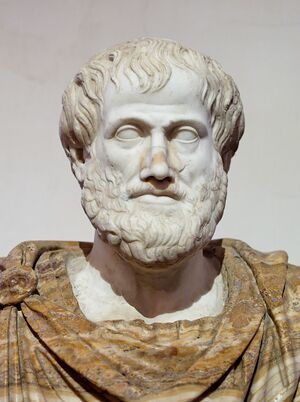Logic (nonfiction): Difference between revisions
Jump to navigation
Jump to search

No edit summary |
|||
| Line 32: | Line 32: | ||
[[Category:Nonfiction (nonfiction)]] | [[Category:Nonfiction (nonfiction)]] | ||
[[Category:Logic (nonfiction)]] | [[Category:Logic (nonfiction)]] | ||
[[Category:Mathematics]] | [[Category:Mathematics (nonfiction)]] | ||
Revision as of 17:21, 23 June 2016

Bust of Aristotle. Marble, Roman copy after a Greek bronze original by Lysippos from 330 BC; the alabaster mantle is a modern addition.
Logic (from the Ancient Greek: λογική, logike) is the use and study of valid reasoning.
The study of logic features most prominently in the subjects of philosophy, mathematics, and computer science.
In the West, logic was established as a formal discipline by Aristotle, who gave it a fundamental place in philosophy.
Logic is often divided into three parts, Inductive reasoning, Abductive reasoning, and Deductive reasoning.
In the News
Fiction cross-reference
Nonfiction cross-reference
External links:
- Logic @ wiki.karljones.com